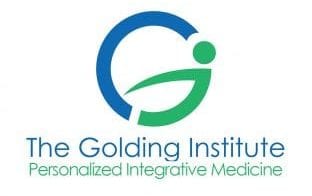There’s a growing dissatisfaction with the current healthcare system. This often leaves doctors feeling rushed and patients feeling as if they’re nothing more than just a number. Integrative medicine seems to promise more time, attention, and a broader healing approach. This is in stark contrast to the “one-size-fits-all” tactic.
However, Integrative Medicine is not a totally new concept to conventional medicine. For years, doctors have been incorporating integrative medicine approaches into their practices. Examples include prescribing nutrients like vitamin D and iron for optimal thyroid health. Some also prescribe vitamin D for osteoporosis.
What is Integrative Medicine
Integrative Medicine is also known as functional medicine. Is is a science-based healthcare that treats illness and promotes wellness by focusing on the unique aspects of each individual. It then individually tailors treatment to restore the whole being. This includes ensuring their physiological, psychological, and structural balance.
It doesn’t concentrate only on the symptoms of chronic disease. Instead, it expands into the underlying causes of the
problem. These can include environmental toxins and genetic makeup. By doing this, the disease can be prevented before it happens.
Integrative medicine seems to promise more time, attention
and a broader healing approach, not the “one-size-fits-all” tactic
Applications of Integrative Medicine
Integrative Medicine Approach to Autoimmune disease
Autoimmune diseases occur when the body’s immune system sees its own cells as the enemy. It then starts attacking
itself.
Conventional treatment uses immune-suppressing medication in an attempt to restore immune health. However, the integrative medicine approach has been found to be more effective in treating the underlying causes.

This includes regulating diets, detoxifying the liver, and re-establishing a balance in the adrenal glands and gut. Methods that restore vitamin and hormone levels are also employed. Additionally, the use of low-dose naltrexone has also been successful.
Integrative Medicine Approach to Depression
Prescribing an antidepressant is the standard conventional procedure. However, Integrative Medicine looks to restore the balance of brain chemicals. There are five main neurotransmitters or “molecules of behaviour”:

Dopamine
Dopamine is the motivator. It gives us purpose, energy, enthusiasm, power. It also affects movement, pain, pleasure, and implementation of thought.
An excess of dopamine brings about impulsivity, violence, and overdrive. In contrast, dopamine deficiency causes fatigue, addictive behaviors, and depressive symptoms. It is also linked with attention deficit disorder (ADD), hyperactivity, and obesity. Furthermore, imbalanced levels of dopamine are commonly linked to Parkinson’s.
Vitamin C, copper, and niacin will assist in balancing dopamine levels. D, L-phenylalanine (especially for pain and fatigue), L-tyrosine, methionine, B-complex vitamins, Rhodiola, and Ginkgo biloba also help.
Norepinephrine
Norepinephrine affects attention and vigilance (the “fight or flight” response). It also influences the sympathetic nervous system and blood pressure. An excess of Norepinephrine causes anxiety and post-traumatic stress disorder.
Meanwhile, a deficiency will lead to energy loss, dizzy spells, and the loss of the ability to sweat. To get back into balance, the supplementation suggestions are similar to dopamine. However, folate, SAMe, arginine, and the amino acid theanine, contained in green tea, should be taken as well.
Acetylcholine
Acetylcholine affects memory, learning, information processing, and language. Excess Acetylcholine leads to feelings
of isolation and paranoia, loss of concentration, and burnout.
Acetylcholine deficiency, on the other hand, causes memory loss, agitation, loss of creativity and learning disorders. Acetylcholine imbalances have been linked to Alzheimer’s Disease, dementia and autism.
You can balance Acetylcholine by taking choline/lecithin, phosphatidylcholine, and phosphatidylserine. You can also use acetyl-L-carnitine, taurine, alpha-lipoic acid, and coenzyme Q10. B-complex vitamins, Ginkgo biloba, and the hormones DHEA and pregnenolone help as well.
Gamma aminobutyric acid (GABA)
GABA is a neurotransmitter and functions as a mood regulator. Excess GABA brings about loss of control. GABA deficiency, on the other hand, causes tremors, anxiety, and insomnia. It can also bring about irregular heartbeat and restlessness.
You can augment GABA with glycine, niacinamide, inositol, and L-theanine. You can also opt for vitamin B6, magnesium, valerian root, and passionflower. Pyridoxine, N-acetyl-cysteine,
and taurine is also used.
Serotonin
Serotonin is famously known as the feel-good chemical. It is responsible for feelings such as excitement, joy, enthusiasm and the exhilarating rush brought on by a challenge.
Too much serotonin, however, produces anxiety and feelings of inferiority. Meanwhile, serotonin deficiency produces poor sleep, exhaustion, and obsessive compulsive disorder (OCD). It can also cause sugar and carbohydrate cravings, and irritable bowel syndrome (IBS).
Physical activity definitively assists in balancing serotonin levels. Supplementing with 5-HTP, folic acid, DHEA, vitamin D3, and St John’s wort also helps.
Integrative Medicine Approach to Cancer
The typical approach to cancer is to cut, burn or poison the disease out of the system. However, this approach doesn’t
look at the patient’s individual situation.

An integrative medicine approach takes into account the patient’s cancer cell groupings, sensitivity or resistance to chemotherapy, and anaemia protection (iron levels in the blood). It also considers enzyme inhibitors
and bone integrity.
Other elements that are factored into tailoring a treatment plan include nutrition and supplementation to fight specific problems.
Integrative Medicine Approach to Cholesterol and Heart Disease
Conventional practices operate within the theory of completely blocking the build-up of cholesterol with medication called statins. But, essentially, it’s not that straightforward.
Cholesterol is actually needed by the body for normal functioning. Furthermore, it is the precursor of vitamin D, some hormones, and the bile acids required for digestion. It’s also needed to form the membrane around cells and for the regeneration of damaged cells.

Conversely, too much oxidised cholesterol leads to blood vessel disease. Lipoprotein, a cholesterol molecule attached
to a protein, usually functions to repair blood vessel walls. However, excess Lipoprotein causes blood clotting and plaque build-up. This narrows the blood vessels.
Cholesterol, however, isn’t the only cause of heart disease. Other major players in increasing your risk include insulin,
free radicals, and heavy metals. There’s also stress, high blood pressure, and genetics. Heart and blood vessel disease can be detected by the degree of inflammation in the body by doing a test called hsCRP (highly sensitive CRP).
Natural anti-inflammatories like omega-3 fatty acids are ideal supplements to lower your risk of high cholesterol. These can be found in fish, krill or flaxseed oils. Curcumin, an extract from turmeric, also has the same effect.
Integrative Medicine Approach to Hormone Replacement Therapy
It’s becoming progressively more accepted that premature aging is due to a decline in hormone levels. Because of this,
restoring hormone levels helps avoid many diseases. These include heart disease, diabetes, dementia, osteoporosis and
arthritis.
Other consequences of hormone deficiency include visual and hearing loss, fractures, frailty, incontinence, obesity
and reduced libido.

Additionally, low testosterone or rising estrone levels in men are associated with prostate cancer. At the same time, low progesterone or raised estrogen levels in women may result in breast cancer.
We discussed Hormone Replacement Therapy in more detail here
Synthetic Hormones
Synthetic hormones are artificial chemicals that attempt to replicate human hormones. However, they are structurally foreign to the body.
It’s been well-documented that the immune system will attack anything it perceives as foreign or toxic
to the body. These synthetic hormones are associated with increased side effects. For example, if used at inappropriate
doses or for too long, there’s an increased risk of breast cancer or thrombotic disorders. These include deep vein thrombosis, stroke or heart attack.
Bio-identical Hormones
Bio-identical hormones, on the other hand, have an identical molecular structure to human hormones. This enables
easy metabolism. Synthetic hormones have been around for less than 50 years. Bioidentical hormones, on the other hand, have existed in our bodies since the birth of the human race.
Integrative Medicine treats the whole person and the underlying causes of their disease, rather than just administering pharmaceuticals to relieve symptoms
Integrative Medicine vs Conventional Medicine
Integrative Medicine isn’t a strange, separate body of knowledge. It’s grounded in scientific principles and information
is widely available today. It combines research from various disciplines into effective proven management
techniques.
In other words, it “cherry-picks” the very best, scientifically validated therapies. Creating a pathway to
wellness is the most intelligent response to disease, as opposed to the conventional methodology of merely
relieving symptoms.
